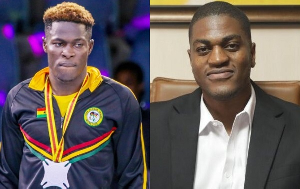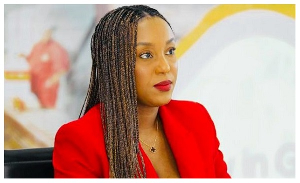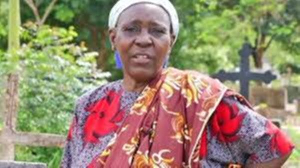The annual Autism and Digital Technology Event and Exhibition (AutismDTgh) 2019 on Monday, opened in Accra, with a call for collaborative support from both government and stakeholders to make inclusive education realistic for children with disabilities.
Ms Hannah Ackom-Mensah, an Early Childhood Consultant and Organiser of the annual event, at the opening ceremony, said the world was currently moving faster and was being driven by technology as an important tool for development, making it critical to ensure that no individual was left out in terms of their total progress through education, health and socialisation.
She said though globally countries including Ghana, were striving to bridge the digital divide, there remained a huge gap between persons with disabilities including children with Autism Spectrum Disorders, and the use of technology.
She stressed on the fact that the failure of countries and societies to support these vulnerable group of persons to become abreast with current trends and use of technology, could spell doom in their achievement of the Sustainable Development Goals (SDG’s), as progress in areas such as poverty reduction, equal access to education and healthcare could be greatly affected.
She described the Autism Spectrum Disorder (ASD) as a neurodevelopmental disorder (brain development disorder), characterised by challenges in social interaction, communication and restrictive or repetitive behaviour in affected individuals, saying the term spectrum, reflected the wide variations in challenges and strengths possessed by each person with autism.
Ms Ackom-Mensah said she was presently carrying out research on Preschool children on the autism spectrum in Ghana, in order to design an intervention facilitated by digital technology which supports their communication and oral language.
The meeting which brought together parents, careers, professionals and other stakeholders, would discuss ways in which digital technology impacts ASD, and uses dialogue to explore how research could improve policy making and conditions in Ghana and across Africa.
The event would further create awareness and acceptance, calling for innovative inclusive education as well as improved research and policy.
Professor Ebenezer V. Badoe, a Neurodevelopmental Paediatrician and Head of Department, Child Health at the Korle-Bu Teaching Hospital, said a total of 480 children have been seen at the facility between 2004 and 2013, with an overwhelming majority (439) being males and 41 females.
He said through there seem to be an increase in the prevalence of autism, diagnostic criteria that enables a diagnosis to be made were now available, compared to the past where all cases were probably labelled as mental retardation.
He said over 95 per cent of the Ghanaian population’s autistics however exhibited the regressive type of autism, and addressing these challenges required a multidisciplinary teamwork involving clinical psychologists, speech, and occupational therapists respectively as well as doctors and the educational system, which, does not currently exist as a model for training in Ghana.
Dr Badoe maintained that language, was also a reliable indicator of the future educational ability and the nation must show interest in early identification of such children, adding that notice of warning signs could be made available to all nursery schools across the country, so that onward referrals were made promptly.
Ms Victoria Nana Akua Owusu, a Speech and Language Therapist and Lecturer at the Department of Audiology, School of Biomedical and Allied Sciences, University of Ghana, called for more research in autism to gather evidence and data for support and effect policy change.
She said the University lacked the instructors for speech and language therapy and this has accounted for the limited number of student intake for the course each year, and so urged the training institutions to make the course attractive to change the narrative.
Health News of Wednesday, 24 July 2019
Source: ghananewsagency.org

















